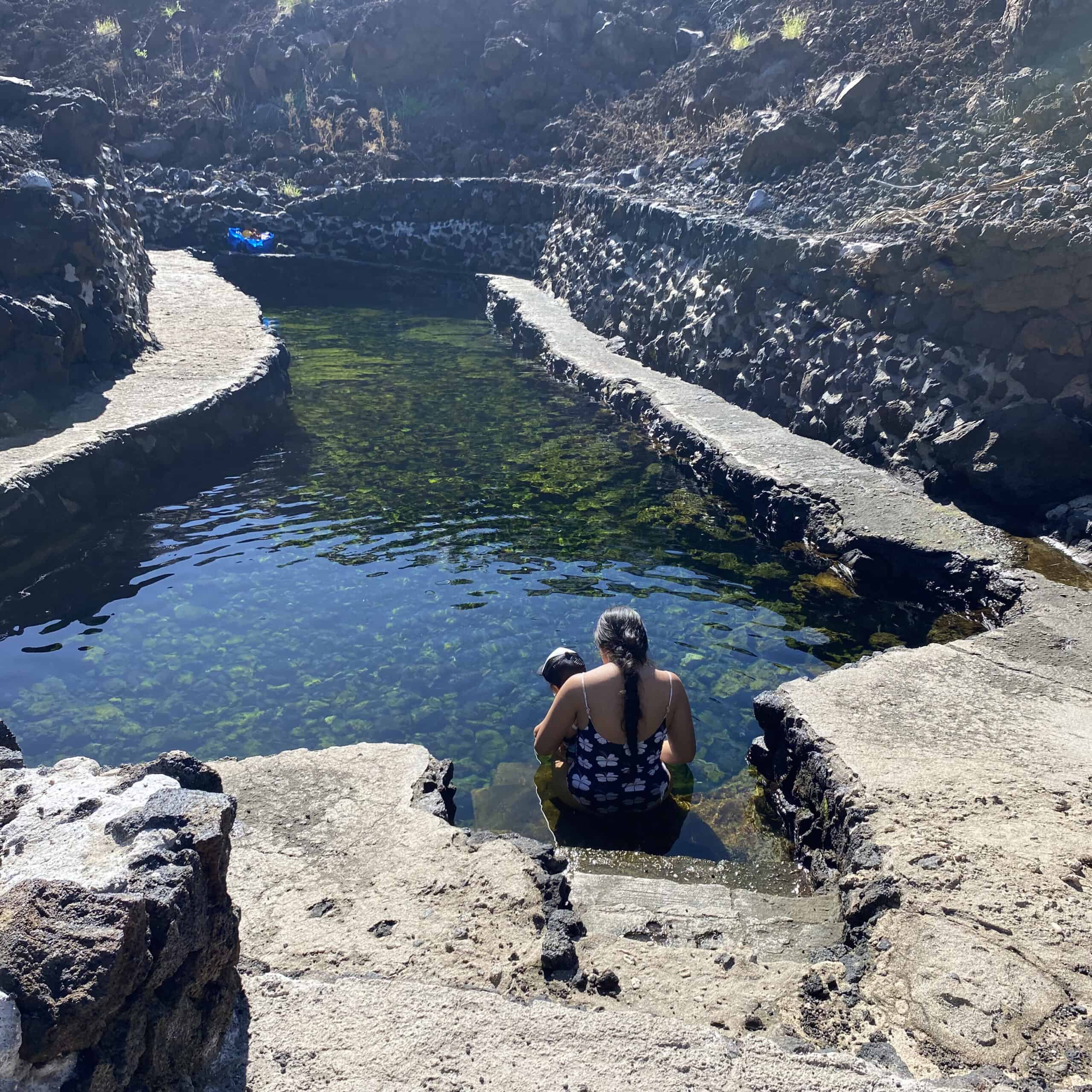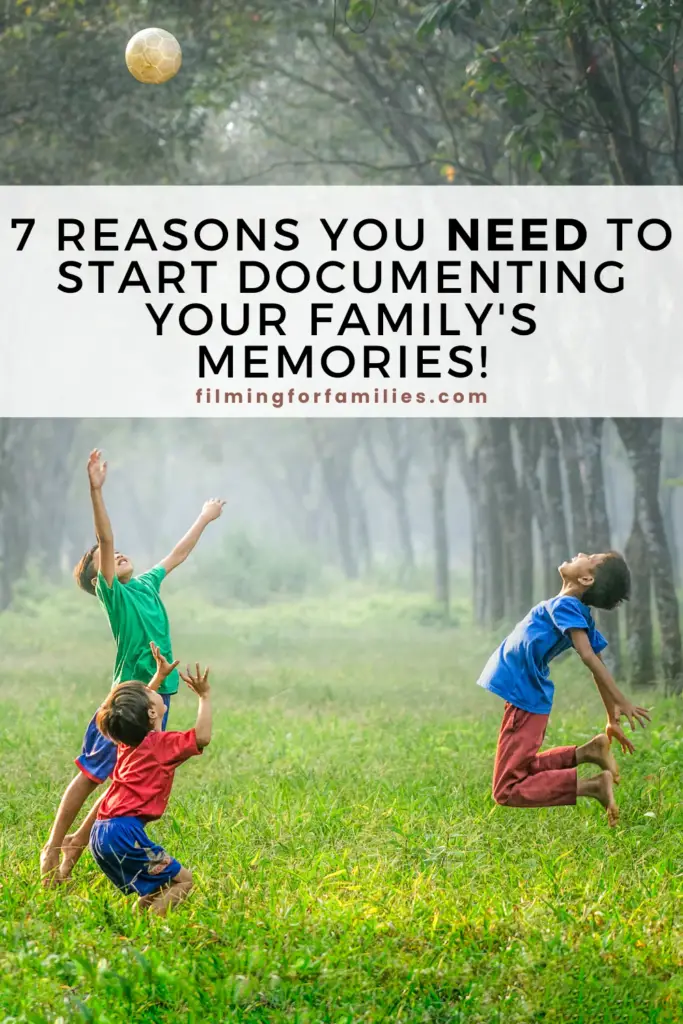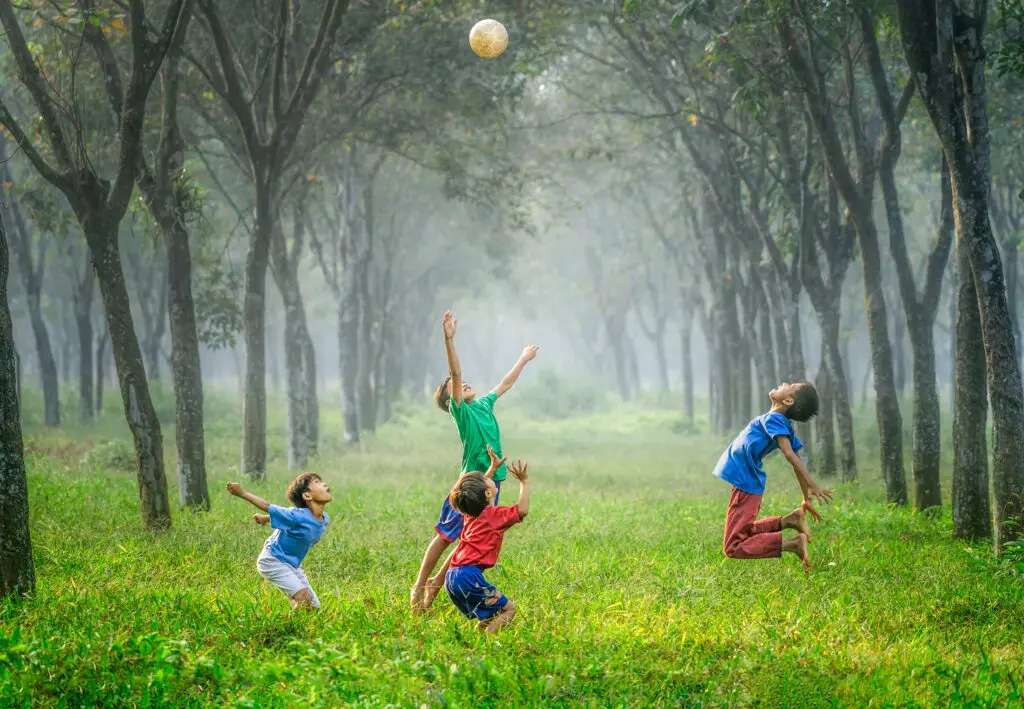Table of Contents
- Introduction
- 1. Boosts Mental Health and Emotional Well-being
- 2. Enhances Children’s Sense of Identity and Belonging
- 3. Unexpected Learning and Skill Development
- 4. Acts As a Catalyst for Reconciliation and Healing
- 5. Aids in Genealogical Research and Connecting Distant Relatives
- 6. Creates a Time Capsule for Future Generations
- 7. Enhances Creativity and Fosters a Storytelling Culture
- Final Thoughts
Introduction
Ever feel like your family’s story might just vanish like footprints on a beach?
You’re not alone.
There’s this nagging feeling, right? That amidst the hustle, the history, laughter, and tears might just slip through your fingers.
Maybe you’ve caught yourself thinking, ‘Who’s gonna remember the way grandpa laughed or how dad always had advice handy, even for problems he’d never heard of?’
Yep, I get it. Life’s a whirlwind, and those precious moments feel like they’re written on the wind.
Here’s the secret sauce though: documenting those precious family memories is more than just clacking away on a keyboard or snapping a photo. It’s about holding onto the essence of what makes your tribe uniquely yours.
And guess what?
It’s not just about nostalgia or clinging to the past. There are some jaw-dropping benefits to this whole memory-keeping gig that you’ve probably never even considered.
So, buckle up! We’re about to dive into 7 surprising reasons you NEED to start documenting your family memories—trust me, you don’t want to skip this ride.
Let’s dive right in.
1. Boosts Mental Health and Emotional Well-being
Look, life can be a rollercoaster—it’s got its ups, downs, and sudden loop-de-loops.
But, here’s a sweet little secret for you: digging into those family photo albums or home videos can be like popping open a treasure chest of joy, you know, the kind that tugs at your heartstrings and brightens your day.
Think about it. When you’re feeling glum, isn’t it comforting to remember grandma’s laughter as she told tales of her shenanigans? That wave of euphoria, it’s rooted in positive psychology—reflecting on good times boosts happiness levels and provides a mental cushion during rough patches.
You’re not just reminiscing; no, you’re also nurturing your emotional well-being. You’re ensuring that tales of grandpa’s fishing trips or your mum’s infamous cooking disasters don’t fade into oblivion—they exist, preserved as nuggets of pure joy, always ready to offer comfort.
2. Enhances Children’s Sense of Identity and Belonging

Remember building forts out of blankets and pretending the floor was lava? Childhood is a magical time fueled by stories – those told by our elders, and those we lived. When it comes to kids understanding who they are and where they fit in this big ol’ world, family stories are the secret ingredient.
Research backs this up big time. According to a study by Dr. Marshall Duke from Emory University, children who know a lot about their family history tend to have higher self-esteem and are better able to handle the stresses of life. It’s like knowing the family narrative provides them with an invisible cloak of strength and resilience.
Imagine a child who knows the tale of their great-grandfather, who overcame massive hurdles to establish the family legacy, or the aunt who traveled the world, bringing back stories instead of souvenirs. This knowledge connects them to something bigger than themselves, embedding a sense of pride, belonging, and yes, a roadmap on navigating their own life journey.
It’s not just about who got the biggest fish tale or who was the family prankster. It’s giving your kids roots and wings – roots to know where they come from and wings to inspire where they can go. Engaging in family storytelling isn’t just a fun pastime; it’s laying down the bricks of who they are and who they could become.
3. Unexpected Learning and Skill Development
Alright, stick with me here. Documenting family memories isn’t just about sitting down with old photo albums or video footage; it’s a full-on skill enhancer.
Yes, you heard that right.
Break out the cameras, journals, or heck, even the old recorders, and you’re not just preserving memories, you’re schooling yourself and your family in more ways than one.
Let’s paint a picture: you decide to digitize grandma’s old recipes. Seems simple, right? But here’s where it gets interesting. You’re learning about photo editing, digital archiving, and maybe even a bit of graphic design as you create a digital cookbook.
A study from the Pew Research Center found that over half of internet users have taken a virtual class or used educational content online. Imagine what happens when you’re motivated by family love—your learning curve skyrockets.
And hey, let’s talk about the little ones for a sec. Crafting, filming family skits, even adding effects to that video of Uncle Joe’s epic BBQ fail—these activities aren’t just fun; they’re teaching valuable skills. Creativity, storytelling, technical prowess—these are the tools of tomorrow’s leaders, innovators, and creatives.
So next time you’re piecing together that family documentary or designing a family tree, remind yourself: you’re not just the family historian; you’re an educator, a tech guru, and maybe, just maybe, a budding filmmaker.
4. Acts As a Catalyst for Reconciliation and Healing
Now, here’s something profound yet beautifully simple.
Ever thought diving into family memories could become a bridge mending old rifts? Yeah, it’s not just about the warm fuzzies from those shared moments. It’s crafting a space where words unsaid find voice, where old wounds can start to heal.
Think of this, a family gathering where stories about the family’s free-spirited matriarch are shared, including by those who might not have always seen eye to eye with her. In the laughter and tears, there’s an understanding, a softening.
Old grievances start to lose their edge. According to a study published in the “Journal of Family Psychology,” storytelling within families strengthens bonds and understanding, offering a form of emotional healing that is often overlooked.
It’s like when you’re listening to that tale of the family road trip that ended in disaster, and everyone chipped in to make the best of it. Suddenly, the cousin you’ve been at odds with doesn’t seem so different. You begin to see each other through the lens of shared history, shared resilience.
The act of remembering together becomes an unstated forgiveness, a collective nod to the fact that underneath it all, we’re cut from the same cloth.
Documenting and sharing family memories isn’t just about keeping the past alive; it’s a toolkit for reunification, for saying, “We’re in this together, through thick and thin.”
5. Aids in Genealogical Research and Connecting Distant Relatives
Ever found yourself leafing through an old family album and stumbling upon a face you couldn’t place? Or, heard a family story that hinted at relatives you’ve never met? These aren’t just idle curiosities—they’re threads in the vast tapestry of your family’s history, waiting to be unraveled.
Here’s where the magic happens: documenting family memories can be your gateway into deep genealogical research. It’s like being a detective in your own family saga, piecing together clues from stories, photos, and documents. And in this digital age, the possibilities of what you can uncover are boundless.
Imagine logging onto a genealogy website, armed with a handful of family stories and a couple of names. With just a few clicks, you might find connections to distant cousins, learn about your ancestors’ migration patterns, or even discover family members you never knew existed. The thrill of these discoveries cannot be overstated.
According to a survey conducted by the Pew Research Center, about one in six Americans have used genealogy sites to explore their family history, signifying a growing interest in these personal connections to the past.
But it’s more than just filling out a family tree. It’s about weaving a richer narrative of who you are and where you come from. It’s about rebuilding bridges – sometimes across continents and centuries – bringing together family members who, though distant, share a common lineage. The bonds formed in these reunions, both virtual and physical, reaffirm the timeless nature of family connections.
6. Creates a Time Capsule for Future Generations
Imagine a future where your great-grandchildren gather around a holographic projector, flicking through images, videos, and stories of your life and those before you.
Sounds like sci-fi, doesn’t it?
But by documenting family memories now, you’re essentially building this very time capsule—an invaluable gift to the future.
It’s about leaving a legacy where future generations can experience their heritage as if they were time travelers, stepping into moments that shaped their identity before they were even a thought. This isn’t just about dusting off the old family Bible or diary; it’s leveraging today’s technology to preserve those memories in vivid detail.
Consider this: A survey from Ancestry.com revealed that over 60% of young adults wish they knew more about their family history. Documenting your family’s stories, struggles, and triumphs provides a sense of continuity and belonging that future generations will treasure. They won’t just know names and dates; they’ll understand the personalities, the emotions, and the dynamics that weave through their ancestry.
Moreover, this isn’t merely a compilation of past events; it’s a narrative that informs future generations about their cultural heritage, instilling a sense of pride and identity. It’s about creating a lineage of storytellers who recognize the power of their ancestry to inspire and guide them.
By preserving these memories, you’re an architect of the future, laying down the blueprint that will help your descendants know where they come from, to better shape where they’re going.
7. Enhances Creativity and Fosters a Storytelling Culture
Let’s face it, every family is a bit of a quirky sitcom, a drama, and a grand adventure all rolled into one. By diving into the art of documenting these family memories, you’re not just keeping a record; you’re spinning the raw threads of everyday life into the gold of epic tales. This creative process isn’t just powerful; it’s transformative.
Imagine sitting down to rewrite the story of your great-grandma’s escape during a tumultuous time in history, or crafting a digital scrapbook about your sibling’s infamous mischief and adventures. Each word you write, every image you curate, is a brushstroke in the larger painting of your family’s saga. It’s storytelling at its finest, and guess what? It works wonders for your brain.
Research in the field of narrative psychology suggests that storytelling significantly enhances memory, empathy, and understanding. When families engage in sharing and documenting their stories, they are essentially practicing these skills, nurturing a culture where creativity isn’t just encouraged; it’s a way of life.
And here’s the kicker: this isn’t merely about preserving the past. It’s about using creativity as a bridge between generations, a way to keep conversations alive. When your children add their chapters, annotating with their perspectives or even using mediums you haven’t imagined, they’re not just passing on stories; they’re reweaving the very fabric of your family’s identity.
Documenting family memories, therefore, is more than an act of preservation; it’s an invitation to engage, connect, and create, bound by the shared love of stories that resonate with the heart and soul of your family.
Final Thoughts
Feeling overwhelmed by the thought of documenting those fleeting family moments? Wondering if you can really capture the essence of what makes your family unique?
Absolutely, you can.
Starting might seem daunting. But remember, documenting your family’s memories through family videography is a powerful way to celebrate the moments that matter most. It’s not just about reminiscing; it’s about creating a legacy that will inform and inspire the future.
And the benefits are immense. Strengthening bonds, healing old wounds, sparking creativity, and giving your children and their children a sense of belonging and identity—it all starts with sharing those stories. This is about turning individual memories into a collective narrative that resonates with warmth and wisdom.
So, take that first step.
Begin with a single story, a photo, a video, or a letter. You’re not just preserving the past; you’re actively shaping a future where your family’s legacy continues to guide and inspire.
Remember, the act of documentation is a powerful testament to your family’s journey. You’re not only a storyteller; you’re a legacy builder. And that’s something truly remarkable.

Feel inspired to elevate your family videos? Dive into Family Video Pro, our online course crafted to enhance your videography skills and capture precious moments effortlessly. Discover the art of family storytelling at your own pace. Embrace the joy of preserving memories authentically. If you enjoyed this article, or think we left out anything important, please leave us a comment below! We would love to hear from you!




